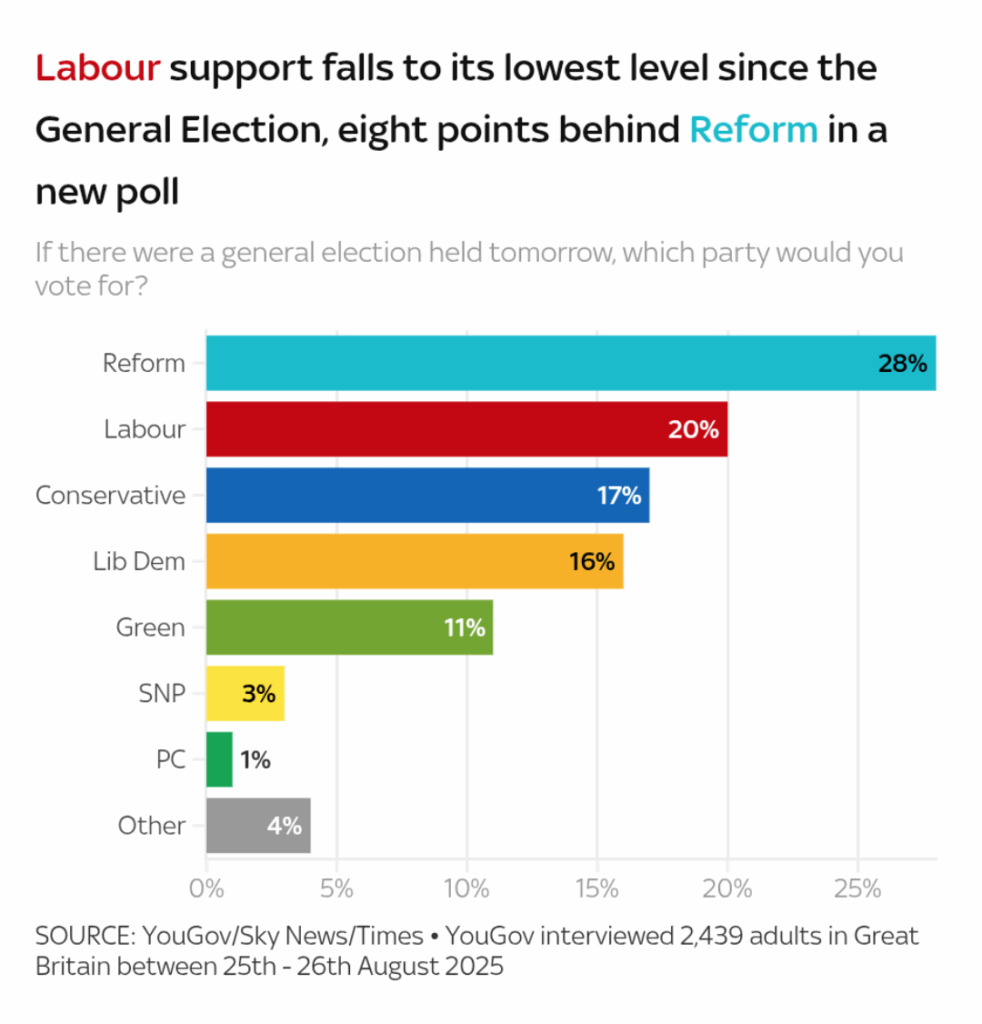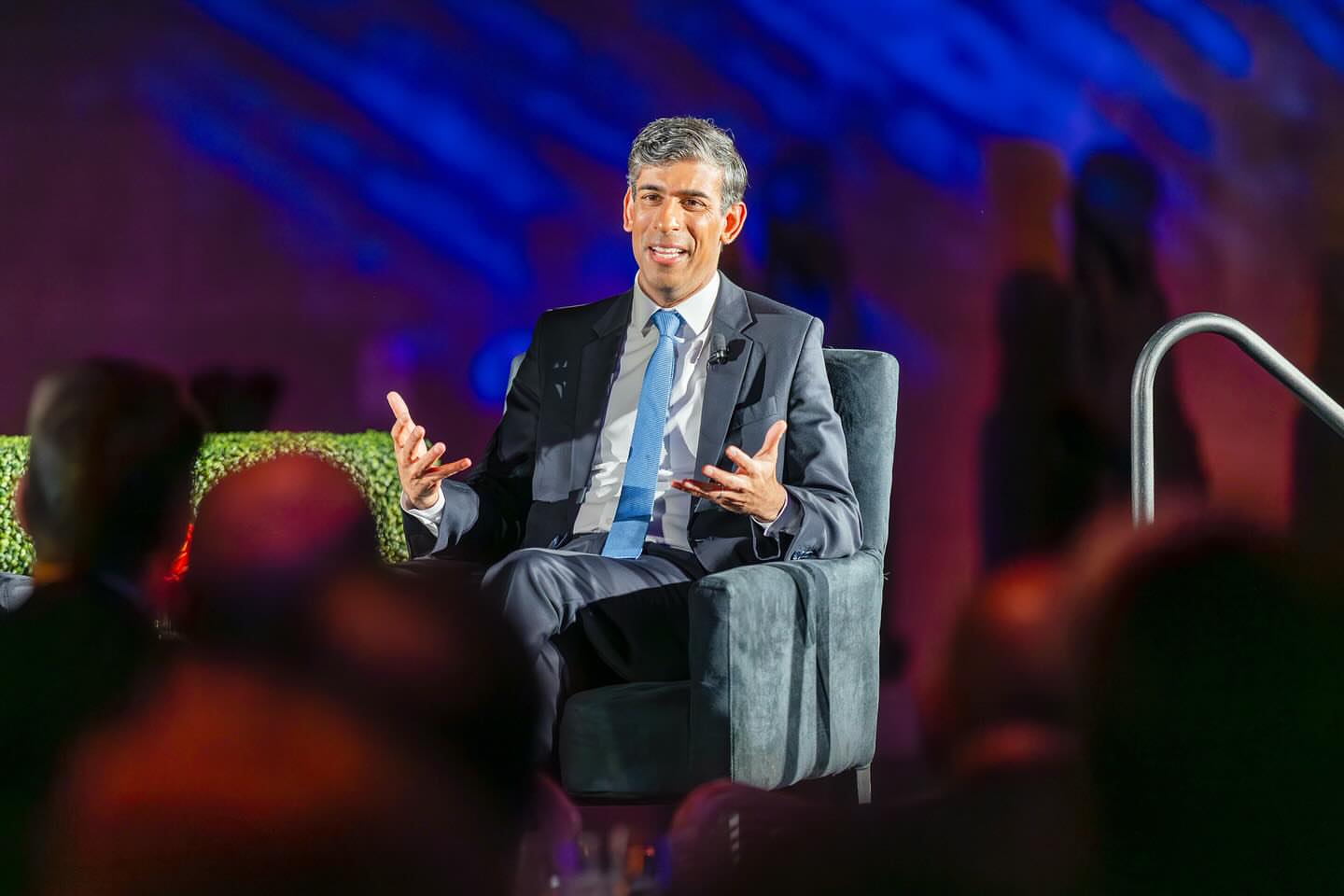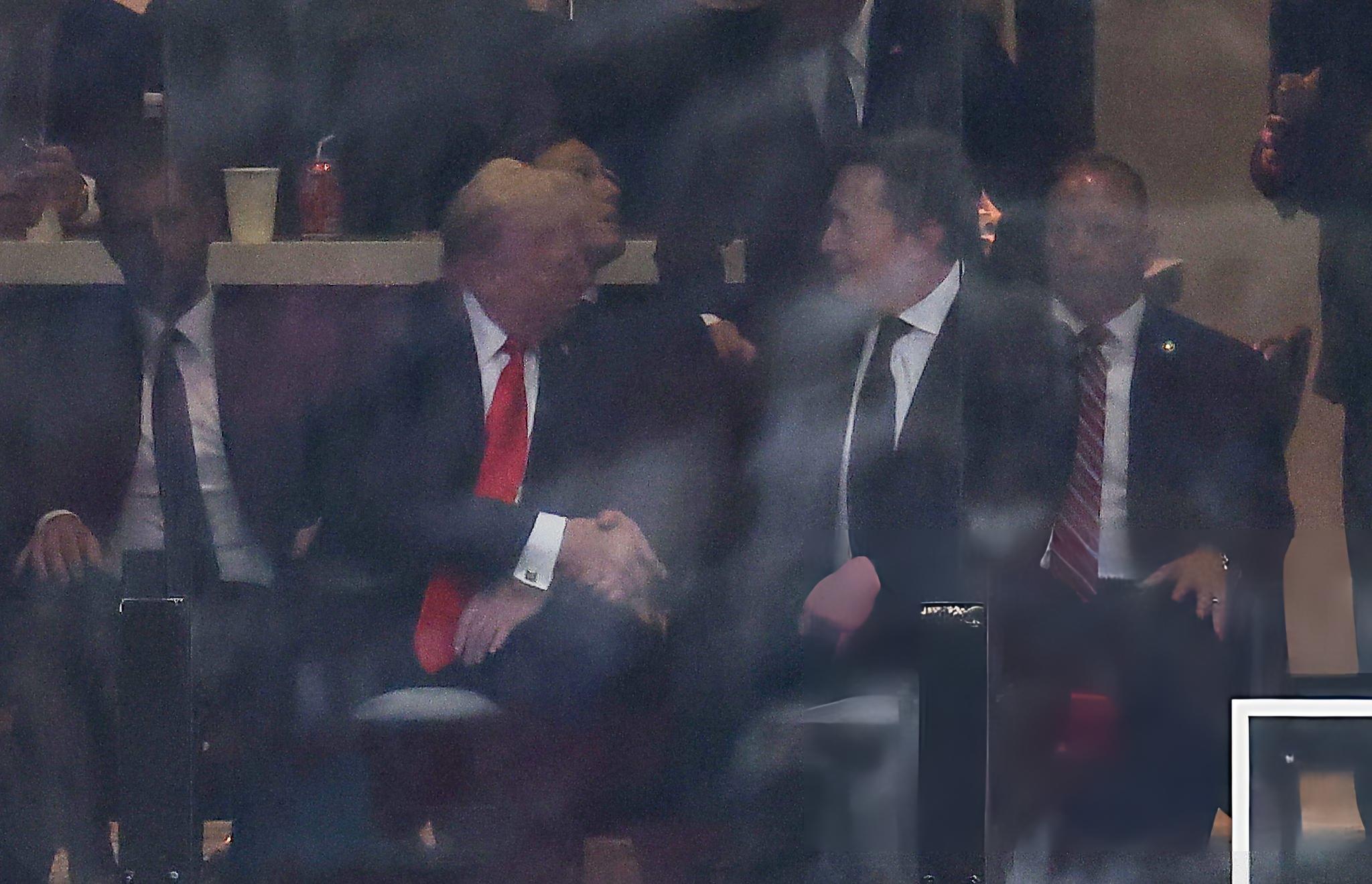After Rishi Sunak shared photos from the Wensleydale Show, his Instagram filled with calls of “Come back Rishi,” arriving just as fresh polling put Labour at its lowest of this parliament and Reform UK out front, sharpening a restless national mood.
Sunak’s Wensleydale photos drew waves of messages like “Come back Rishi,” “You were right all along,” and “UK needs you,” with the thread spreading beyond his feed and amplifying rapidly across social platforms. The attention lands on an ex prime minister who has kept a low public profile since stepping down as Conservative leader last July, while staying on as an MP and taking a senior adviser role at Goldman Sachs, his former employer.
A new YouGov snapshot reported last week put Labour on 20 percent, its lowest level this parliament, just ahead of the Conservatives at 17 percent, with Reform UK leading on 28 percent. The figures have intensified pressure on Prime Minister Keir Starmer and help explain why praise for Sunak is resonating online as voters reassess their options, as Reform’s rise squeezes both major parties.

YouGov’s August read on leadership preferences showed Starmer’s best prime minister lead over Nigel Farage narrowing to 35 percent versus 28 percent, a tighter landscape even as Labour trails on headline voting intention.
A Times of India report links Labour’s slump to internal strains and warns that poor results next May across Wales, Scotland, and London could trigger leadership questions, adding to the sense of drift. The report also flags the ongoing challenge of small boat Channel crossings and government pledges to detain and return arrivals, issues that remain sensitive and highly visible.
Meanwhile, Bring Back Rishi language has appeared across Instagram beyond Sunak’s feed, showing cross platform amplification that can turn a local fair visit into a national story.
Also Read: French public erupts over Bayeux Tapestry loan to UK
If Labour’s trough persists, the online groundswell could grow, even if it stays largely symbolic rather than organisational in the near term. Trends in leadership preference, especially the narrowing between Starmer and Farage, will be key signals of shifting sentiment as Reform’s momentum tests both major parties.
The next electoral tests in the devolved nations and London will reveal whether this surge of social engagement maps onto real world outcomes or remains a digital echo.




